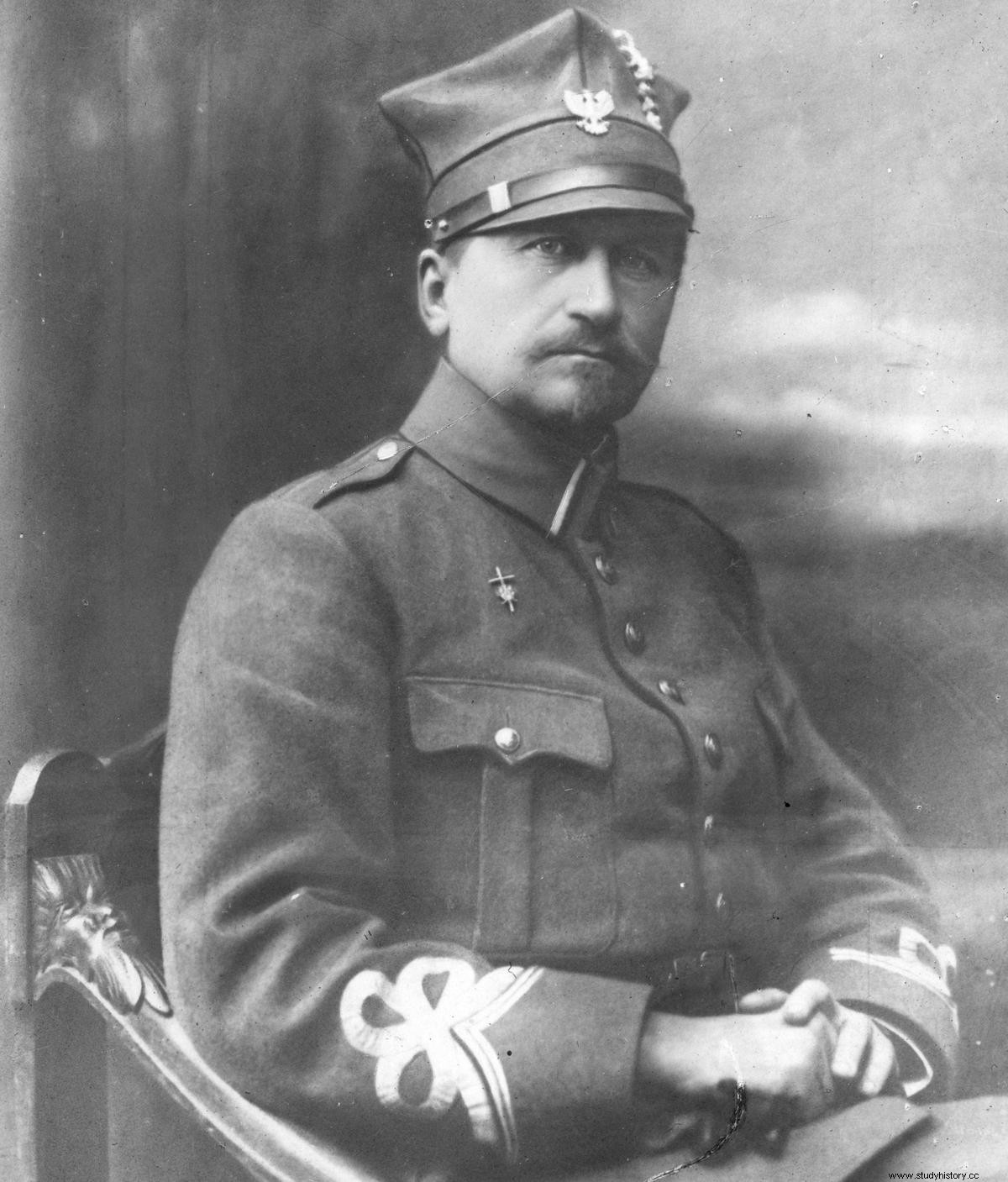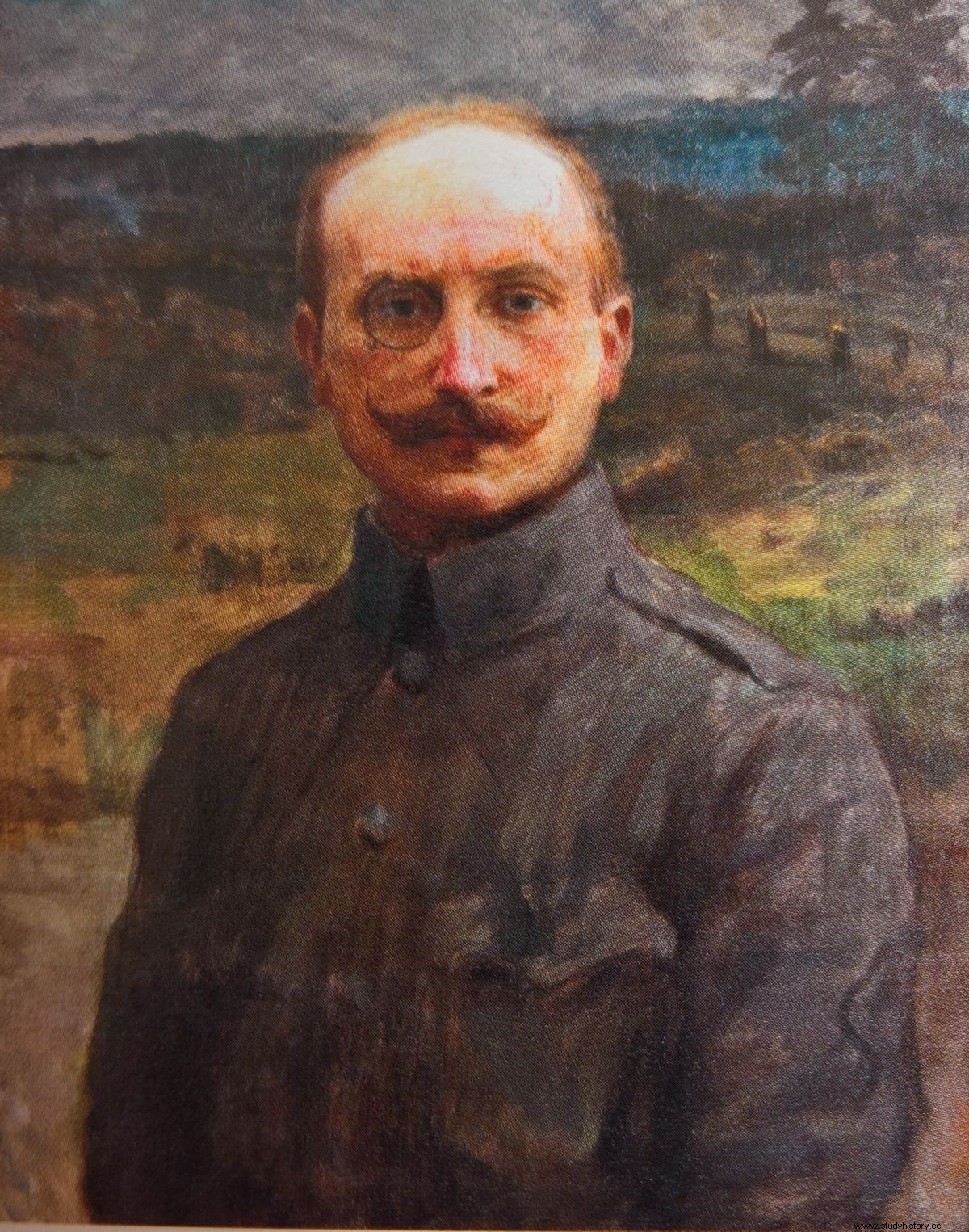Right-wing opponents claimed that there were a handful of them and sat in the back "spilling" ink, not blood. The truth was completely different. It's high time to remind you about the Jewish heroes of the fight for Polish independence.
In the years 1914-1917, from 25 to 30 thousand soldiers passed through the ranks of the Legions. Among them, the most numerous group were, of course, Poles. In second place - which many "true patriots" today forget - were Jews. They were encouraged to fight against tsarist Russia, among others, by numerous appeals, such as the one quoted in the latest book by Andrzej Chwalba, entitled Polish Legions 1914-1918 :
Remember that Poland will belong to those who will fight for it. Whoever loves freedom and wants to be a free citizen, who does not want to be a slave of tsarism, who does not want to rot, who wants to live and develop in the sun of freedom, let him go with us. […] In the footsteps of Berek Joselewicz, follow the freedom of Poland!
Cowards and roofers?
How many young Jews have followed this call? Until recently, it was believed that as many as 10% of the legionnaires from Galicia and 4% from the Kingdom of Poland were Orthodox Jews. The latest findings of Marek Gałęzowski, a historian associated with the Institute of National Remembrance and the Lazarski University, make us verify this thesis. According to him, a total of 648 Jews and people of Jewish origin fought in the Legions .
These soldiers constituted from 2 to 2.5% of all legionnaires. So, was General Józef Dowbor-Muśnicki right, who claimed that "there were few Jews, and they usually" poured "ink", hiding in the safe rear?

Are the accusations of General Józef Dowbor-Muśnicki against legionnaires that they avoided while standing in the back true?
None of these things. Even if the numbers aren't impressive, the examples of heroism are. The story of Izaak Jungerman from Będzin, who joined the Legions on August 26, 1914, draws attention. In the opinion on the application for the award of the Virtuti Militari, his superior Edward Śmigły-Rydz wrote:
As a sanitary corporal and commander of a sanitary patrol, he treated the wounded at the risk of his own life in all battles. During the retreat from Quailowo, , despite the enemy's very heavy fire, he carried the heavily wounded Captain Haller out of the battlefield . After this time, he immediately returns to the battlefield. A few more wounded soldiers are still operating, and the wounded himself carries the dying sergeant, Aleksander Patkowski. […]
He was characterized by great bravado, extraordinary courage and dedicated work. There was not too much fire for him, he always reached where his help was needed.
Another knight of the Virtuti Militari order was Motel-Natan Lewinson. As we read in the posthumous application for the award of the decoration, this son of the January insurgent:"despite the fact that he came from a little intelligent and Jewish family, he amazed everyone with his sincere and complete dedication in the fight for freedom and independence of the homeland".
The Virtuti Militari Cross was also awarded to Lieutenant Bronisław Mansperl (pseudonym "Cornflower"), who died in October 1915 in the battle of Kuklami. He was a member of the famous cadre company that went to war on August 6, 1914, giving rise to a legionary legend. His funeral in Warsaw became a real manifestation of Polish-Jewish solidarity.
Adolf Sternschuss, a doctor of law, a counselor at the general prosecutor's office in Lviv before World War I, also entered the golden letters in the epic of Piłsudski's soldiers. After its outbreak, as an officer of the Legions, he was assigned to the recruitment office of the Supreme National Committee in Piotrków. After a year, however, he gave up his officer's epaulettes and went to the front as an ordinary legun.
In the ranks of the 1st Infantry Regiment, he took part in all the battles fought by this formation. For his merits on the battlefield, he was promoted to the rank of corporal. He also paid the highest price for his courage and patriotism, dying at Kuklami in Volhynia. According to his brother's account, shortly before his death, he was even promoted to senior sergeant, but he did not manage to receive the nomination.

Adolf Sternschuss in the portrait by Teodor Axentowicz.
These are just a few examples of the heroism of the Jews. In total, about 80 of them died in the fight for a free Poland, which constituted as much as 12% of Jews fighting in the ranks of the Legions . Surprisingly much for the alleged roofers. Besides, their bravery and dedication to the cause is best evidenced by the fact that 190 received various decorations after the war.
Why didn't they recruit?
As you can see, the accusations of cowardice and roofing should be placed among fairy tales, but the opponents of the Jews in the Legions were right about one thing. The Jews were not too keen on recruiting new conscripts. But here too, no ill will or unwillingness can be seen. The explanation of this state of affairs is provided in his book Polish Legions 1914-1918 Andrzej Chwalba. The idea was that "the addressees of the legion's propaganda should not say that they are recruiting to" socialist-Jewish formations ".

Agitating for the Legions in 1914, Herman Lieberman became convinced that his Jewish origins definitely did not help in winning recruits.
The painfully deserving PPS activist Herman Lieberman found out about his deep prejudices. When in 1914 he was agitating for the Legions in Congress Poland, one of the participants of the meeting said to him : "A Jew will not teach patriotism" .
It was not an isolated incident at all. Even though recruiters entering houses and opening meetings with future leguns "praised God first and made the sign of the holy cross", they were often accused of "Jewish work" or "Jewish tool".
Forgotten Heroes
Associating the Legions with Jews during World War I was part of everyday life. And although it was then a black PR, it cannot be denied that the Orthodox Jews stood up in large numbers to fight for a free Poland, shedding their blood for it. Let us remember this when someone says again that the Jews "never had the good of the Polish nation at heart ".
In the end - as Andrzej Chwalba mentions in the already cited book - the gray shooter outfit was put on by people such as:
Mieczysław Kaplicki, later president of Krakow, Damian Wandycz, future director of Polish Oil Export and father of the famous historian Piotr Wandycz, [...] brothers Tadeusz and Henryk Wereszycki (the first was murdered by Soviet authorities in 1940, and the latter would become one of the most outstanding Polish historians). [...] Henryk Gruber, future president of PKO (Pocztowa Kasa Oszczędności), Lt. Col. Juliusz Leski, co-founder of the Polish arms industry, Marek Pipes, father of the outstanding American historian Richard Pipes.
These are just a few of the hundreds of legionnaires of Jewish origin who believed that they could win independent Poland with weapons in hand.
